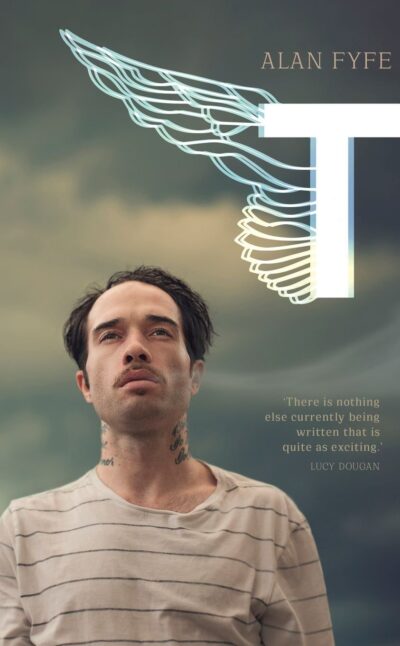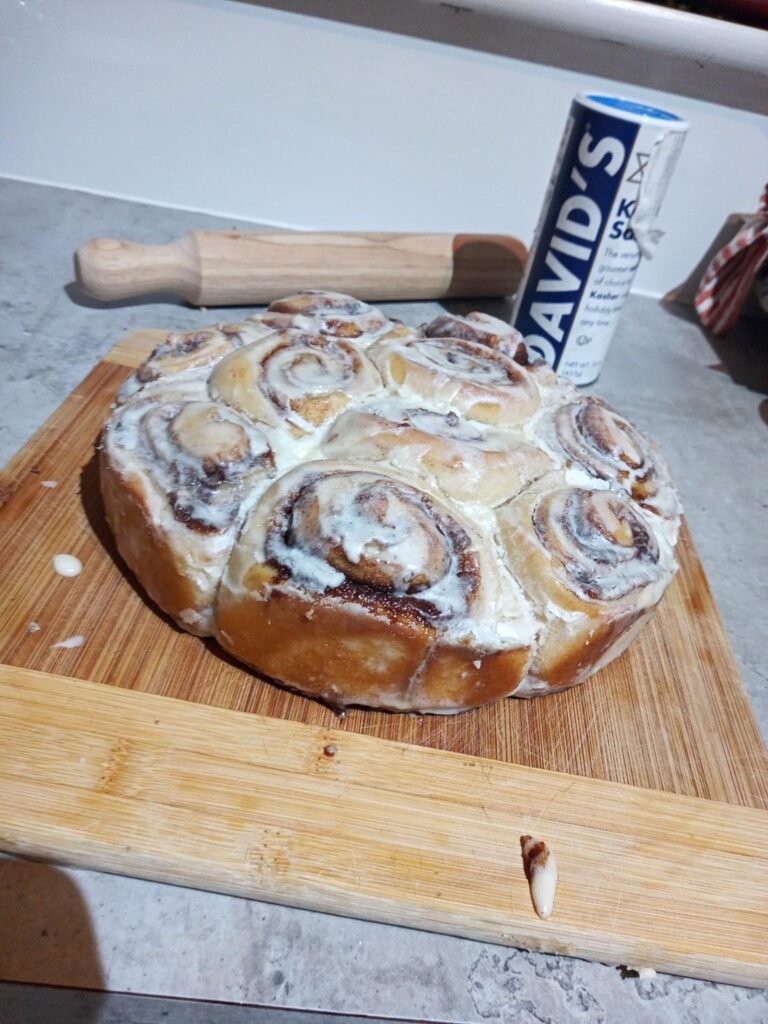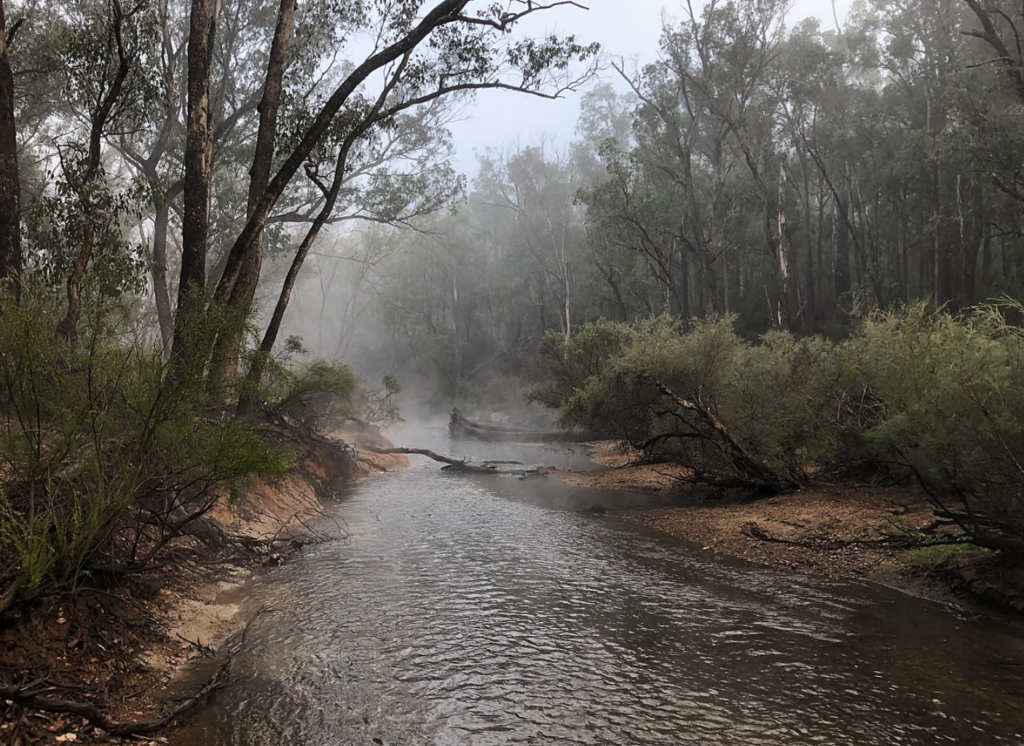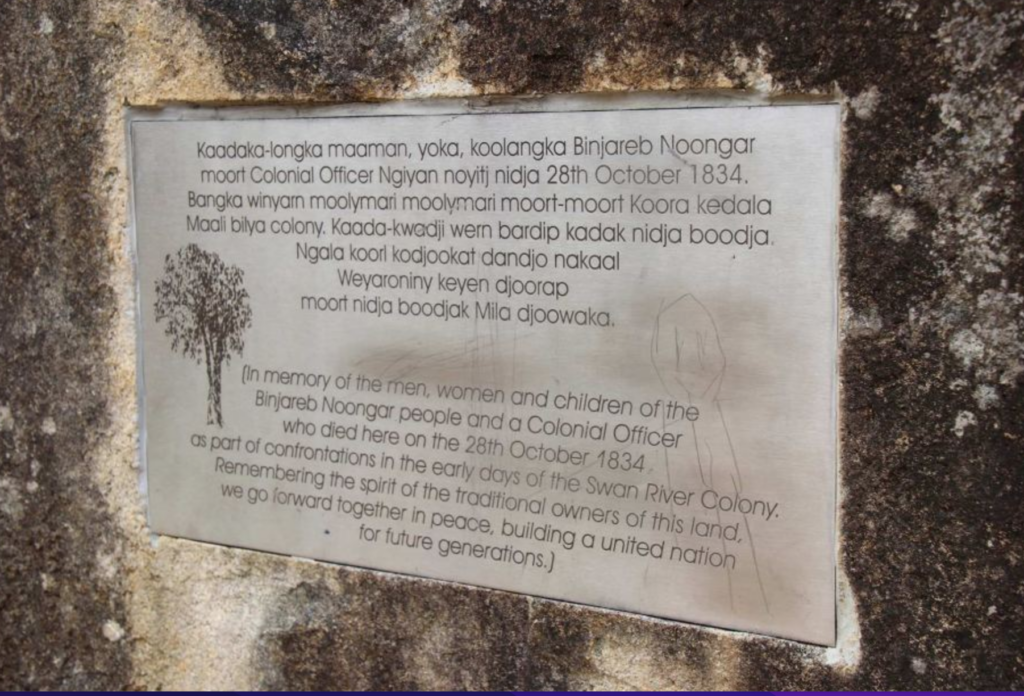
Interview with Alan Fyfe, author of T
I can’t believe it’s been over two years since I last published an author interview on this website! I’m back and my first interview in my 2022 series is with Alan Fyfe — some of you may remember Alan’s poetry reading from last year. This time he’s back as a very-soon-to-be published novelist. As with the artists and writers I previously profiled, I included questions from The Proust Questionnaire in this interview. Authors are always free to ignore these or any of my other questions but I am very grateful that Alan answered all of them because now I know even more about this very talented writer who I am proud to call a friend, and I learnt a lot about perseverance in the publishing game.
Alan is a Jewish writer originally from Mandurah, the unceded country of the Binjareb Nation. His poetry and prose can be found in journals including Westerly, Overland, Australian Poetry Journal, and Cottonmouth. He was an inaugural editor of UWA creative writing journal, Trove, and a prose editor for American web journal, Unlikely Stories. He has won the Karl Popper Philosophy Award and been shortlisted for the Judith Wright Poetry Prize (2021). This year, he was commended Tom Collins Poetry Prize, and selected as a WA Poets’ Inc Emerging Poet. T (Transit Lounge) is his first novel and will be released in September 2022.
Congratulations on your debut novel! I’m so looking forward to reading it. I’m going to begin with a question that you’ll no doubt be asked countless times: What inspired you to write the novel? Thanks! That’s a really complex question for me because the novel developed out of a lot of different things. I went to live in a very obscure place by the river in Pinjarra, I was a few years out of undergrad and had written a lot of stories and poems already and I wrote a lot more while I was there, staying away from people, hiding and practicing, I guess. I started to compile the good ones into a single manuscript that was poetry and prose together.
I wanted to talk about methamphetamine use, about love, and about the struggle to express yourself, in art, from the social and economic margins.
I realised that everything I had been writing happened in a shared universe, like Stan Lee’s master plan, so I wondered if that collection was the book. It wasn’t. When I moved up to Perth, the bottom fell out of the industry I was working in and I was on the dole. I had a story published in Westerly called Summer, so I used that story as the starting premise and I structured a novel around the collection I’d written, so it was a book within a book concept where the main character from the novel would find another character’s manuscript – the original collection. In time, the book within a book idea went out the window and the novel was left. I wanted to talk about methamphetamine use, about love, and about the struggle to express yourself, in art, from the social and economic margins.
But I don’t even think that’s the whole answer. I wrote a whole novel in my early teen years, starting when I was thirteen. It was about a satanic cult in Dwellingup. It was a fantasy book but set in a real place. It wasn’t a very good novel, unfortunately I wasn’t the writing prodigy that I wanted to be. Then I discovered Salman Rushdie, at fourteen or fifteen, writing magical stuff set in real places, and a lot of ideas fell into place for me. I burned the original manuscript and started trying to learn to write in earnest. The current novel has some Satanists from Dwellingup show up in it. In some ways, I feel like I’ve been editing the same novel from thirteen onwards. It just got really big and T is a fragment of it.
Your book is set in the Peel region, and you’ve written in your official bio that you are from Mandurah. Could this book have been set anywhere else? Or is there something about the story that is specific to the.area? Yes, it absolutely could have been set in a different place. I’m not sure if it’s entirely what the book is about, but a lot of the plot is based around meth use. Western Australia leads the national statistics for meth use and, frankly, part of it was processing a lot of things I experienced first-hand. But it could equally be a story around the Avon Valley. Northam is as well known for its meth use as the Peel Region. It could have been a place in South Australia, Queensland, etc..
Artists aren’t automatically free of ethical responsibilities, not if it’s a social act like putting the art in front of people.
But T couldn’t have been set in a capital city. We’ve seen plenty of that and it’s a cliché in drug writing at this point. When I talk about the Pinjarra Massacre in the book, again that could be a lot of places in Australia, all our towns are founded on violent theft from First Nations.
But in a real way, I couldn’t have set it anywhere else because that’s where I spent most of my life. It’s where the movie screen in my head projects most of the stories and poems I make up. The shared universe is some multiversal version of the real Peel Region. Stephen King made up Castle Rock as a fictional place for his stuff to happen, or you have Gotham or Metropolis in D.C. comics as a canvas for their fantasies. For me, it was magical ‘with a capital R’ Realism as the way ahead for this book, and it was pointless trying to make up somewhere that wasn’t real for that purpose. I’m talking about some real social issues in there, it made sense to me to talk about them in a place I knew they were really happening.
It’s a fiction, but I couldn’t dishonour the real-life subjects of these issues by just using them as conceits for a plot. Keeping it set somewhere I am associated with kept me honest about the heart of the story. I think that’s important to remember. Artists aren’t automatically free of ethical responsibilities, not if it’s a social act like putting the art in front of people. Artists are as responsible for what they do as anyone else, so I choose to accept that relationship with the place I spent so much time, and went through so many things, and not put a completely abstract glaze on it.
Ultimately, people think books that wear art on their sleeve are a risky prospect, and books about hard subjects are a risky prospect too, an agent literally told me off for writing lit fiction.
How did T make its way from an unpublished manuscript to what it is today? Did making the shortlist in two unpublished manuscript awards — the TAG Hunger and International Chaffinch Press Manuscript Award — make the journey any easier? Sure, which isn’t to say they made it easy, just easier. Publishers don’t necessarily like the same stuff prize judges like. But the prize judge in a contest can certainly make your name stand out in a slush pile – earn you a second glance. Ivor Indyk and Teri-ann White have expressed some valid misgivings about contests. But, overall, contests can do something for writers in the early stages, I’m in favour of them and I don’t think I would have made the same impact without them. They can certainly boost confidence, let you know that some people think you’re on the right track.
It was almost three years exactly from the first shortlisting until T found a home, though. It was a wild ride through the publishing world, a sordid tale or near misses, massive rewrites for no contract, funding for the first publisher who accepted it falling through, a publisher ghosting me after getting me to do a rewrite. They have a lot of power over a first novelist, and can get you to follow all sorts of whims for no return. Ultimately, people think books that wear art on their sleeve are a risky prospect, and books about hard subjects are a risky prospect too, an agent literally told me off for writing lit fiction. I’m incredibly happy with where it ended up, however. Transit Lounge are the opposite of my experiences so far – they’re chill, forward thinking, and art minded. An extraordinary publisher in the Australian market. Another thing about working with so many publishers is that I got editorial advice from all of them, so at the stage it hit Transit, it didn’t need much work. Kate Goldsworthy, who did the final edit, was great and really got what I was doing in there, even the central joke about a cheeky Shetland pony. So, the journey was both frustrating and beneficial to the work. I got a dream publisher and I got to polish the book to a mirror finish.
Not writing would be like trying to convince an 80-year-old Rabbi to be an atheist.
Why do you write? I’m asking this because it’s a question I often ask myself. I concentrated on it from an early age and ended up not much good at anything else. I make music, but never spent as much time getting good at that as writing. Same with any of my other pursuits – martial arts, fire twirling, doing real jobs. I never made them main things enough to do them extremely well. Something about reading poetry when I was very young flicked a switch in my head. I decided to do that, so I did it all the time. Now it’s like strong a religious affiliation. It’s not sensible or explainable fully. Sometimes I think it may be bad for me, it’s certainly not a great income or equivalent to much power in this world. I don’t think of it as therapy either, there’s a lot of shitty stuff involved with the struggle to make good art, and revisiting trauma for the 14thedit ain’t great fun either. It just is what it is at this point of my life. Not writing would be like trying to convince an 80-year-old Rabbi to be an atheist. I do hope to give up one day though, to stop writing when I run out of things to say. I can still believe in it then, just not do it. Like our buddy, the old Rabbi, he might just sit around thinking about G-d but not do Rabbi things anymore.
***
What is your idea of perfect happiness? Baking a successful baked good.
What is your greatest fear? The usual one – what the world might be like for my son.
What is the trait you most deplore in yourself? Suicidal ideation. I wish it would go away. I’m 49, I’ve had enough of it.
What is the trait you most deplore in others? Extreme selfishness and extreme ideological commitment. A little selfishness is natural, as is a little ideology, too much kills everything ethical in a person.
 What is your greatest extravagance? Lol – historically or currently? Straight up – I took way more drugs than I should have in the past. These days, I bake extravagantly, I buy vinyl records. No one really needs vinyl records, it’s a middle-aged wanker thing. Baking is holy though, it’s the biggest connection to my Jewish culture I keep going permanently, apart from being the recipient of racism quite a lot, which isn’t something I can control. Devotional baking is something I can control well. A person can be extravagant in his devotions too, no reason not to.
What is your greatest extravagance? Lol – historically or currently? Straight up – I took way more drugs than I should have in the past. These days, I bake extravagantly, I buy vinyl records. No one really needs vinyl records, it’s a middle-aged wanker thing. Baking is holy though, it’s the biggest connection to my Jewish culture I keep going permanently, apart from being the recipient of racism quite a lot, which isn’t something I can control. Devotional baking is something I can control well. A person can be extravagant in his devotions too, no reason not to.
What is your current state of mind? Typing.
What do you consider the most overrated virtue Obedience.
When and where were you happiest? Honestly, right now and right here feels about the best things have ever been. I’ve gotten to where I want with writing, I’m in a happy relationship. I can pick different days and moments in the past that were great but, on overall balance, right now is consistently delivering the vibes.
If you were to die and come back as a person or a thing, what would it be? Someone who was a musician primarily, to give a different life in art a go. But that’s just a different version of me, so maybe it’s cheating. I dunno, as a woman probably.
What is your most treasured possession? I’m not good at keeping things. My boy, my love, and my friends, I suppose. But I don’t own them. I have my family’s Jewish artifacts, I look after them, they were kept treasured by refugees forced out of their homes. I don’t know that I own those either, they go forward and backwards in time, they’re just staying with me right now. My son or one of my nieces will look after them one day.
Who are your favourite writers? Mostly my friends – you, SPM, Maddie Godfrey, Catherine Noske. I get to like your writing and like you as people too. If you scratch a favourite writer, you often find a seething arse clown underneath. But I do think that some of our most interesting writing is coming out of the West Australian avant-garde right now, and a book like Vociferate was a first strike in all that. Maybe, because we’ve been ignored by the eastern [states] cultural centres, we grew up wild and free. Salman Rushdie was a big influence, as stated before, and T.H. White was too. I read a lot of classics, I love Ovid, Suetonius, Aristotle. I like Virginia Wolf, Emily Dickinson is a huge thing for me, and lots of modern American poets like Charles Simic. I really dig an American poet called C.A. Conrad right now. I read everything Albert Camus wrote, finished his entire work a few years ago, but Simone de Beauvior’s Ethics of Ambiguity is my favourite philosophy book, on an equal footing with Bernard William’s Ethics and the Limits of Philosophy. I think John Darnielle is the best lyric writer in history and he’s started doing novels now, which are also great. Kafka probably goes without saying, and other Jewish writers like Andre Schwartz-Bart and Nicole Kraus and Paul Celan and Allen Ginsberg and Fay Zwicky. Kazou Ishiguro is a writer who has never let me down and my favourite Australian novelist is Kim Scott. Kim Scott should win the fucken booker already.
Who is your favourite character in literature? Kermit the Frog.
Which historical figure do you most identify with? Peasants whose names didn’t get recorded, Jews who got massacred in the million massacres people don’t bother to talk about, and William Topaz McGonagall.
Who are your heroes in real life? The people closest to me. Channa, my mum, her memory for a blessing.
How would you like to die? I have like a dream vision stuck in my head of an old red truck with bricks on the back of a flatbed cleaning me up as I’m driving along one day. I don’t know how it got there and I don’t know if that’s exactly how I want to die. I think about dying a lot and I want to do it differently on different days. But whatever it is, quickly would be good. I’ve seen a couple of people dying slowly and it doesn’t look like much fun.
***
What’s next for Alan Fyfe?  I have a scholarship in creative writing at UWA. They give me a small amount of money every fortnight to cover rent, plus expert guidance, while I write another novel. It’s feels like an outrageous privilege compared to what came before. The next novel is a prequel to T, part of an eventual trilogy set in Peel, and it’s in chiastic structure. I’m obsessed with poetics, and chiasm is a very ancient type of poetics that is still useful today, you’ll find it in Star Wars, in D.M Thomas and Herman Melville. But its roots go back to Torah and Koran. I love the deep connections to our ancient ancestors that poetics gives me. It’s like parallelism, the primary poetic technique in the Epic of Gilgamesh. Today, parallelism is just a rule of good prose writing, something you might be told to do in a style guide or Grammarly (I have never used Grammarly tbh). These rhythmic / poetic moves that someone invented those thousands of years back can become so entrenched that people barely realise they’re in modern language. We think we’re doing something technical, basic mechanics, but we’re singing bardic lines.
I have a scholarship in creative writing at UWA. They give me a small amount of money every fortnight to cover rent, plus expert guidance, while I write another novel. It’s feels like an outrageous privilege compared to what came before. The next novel is a prequel to T, part of an eventual trilogy set in Peel, and it’s in chiastic structure. I’m obsessed with poetics, and chiasm is a very ancient type of poetics that is still useful today, you’ll find it in Star Wars, in D.M Thomas and Herman Melville. But its roots go back to Torah and Koran. I love the deep connections to our ancient ancestors that poetics gives me. It’s like parallelism, the primary poetic technique in the Epic of Gilgamesh. Today, parallelism is just a rule of good prose writing, something you might be told to do in a style guide or Grammarly (I have never used Grammarly tbh). These rhythmic / poetic moves that someone invented those thousands of years back can become so entrenched that people barely realise they’re in modern language. We think we’re doing something technical, basic mechanics, but we’re singing bardic lines.
I never mind doing things for free if it’s for a more avant-garde project I love. It think that attitude is important to what I do, to stay out at the edge of things.
I also got awarded a place in the WA Poets’ Inc emerging writer program, for a full-length poetry collection that I’m looking to get published next. It’s called G-d, Sleep, and Chaos and it was prompted by a lot of emotions I had after the massacre of 11 people at the Tree of Life Synagogue in Pittsburgh, 2018. So, that, finish second novel. I also have a novel project I’m planning with my buddy, the last living Gonzo journalist, Serkan Ozturk. On top of all that, I’m still writing new poems, getting involved in the more underground side of literature. I never mind doing things for free if it’s for a more avante garde project I love. It think that attitude is important to what I do, to stay out at the edge of things. In other words, I’m super busy and hoping to get as much out as I can while I have this protected time with a wage for writing. That feels like the biggest lit prize and it makes the best kind of difference. As I said, I will give up one day, but not before I’ve tried my hardest and gotten the best return I can from the time spent practicing the craft – I don’t mean financial return by that, I mean art out in the world. That’s the point if there is a point.
You can pre-order T @Transit Lounge or at any good book store. Release Date: September 2022

